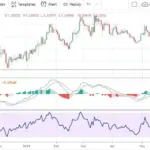Title: Reviewing the Best Brokers for Crypto Trading in 2025
Cryptocurrency trading has evolved far beyond Bitcoin speculation. In 2025, the market is more sophisticated, regulated, and globally connected than ever. Traders now have access to professional-grade tools, real-time analytics, and multiple crypto pairs through both traditional brokers and crypto-native exchanges.
But with so many platforms competing for attention, how do you choose the best crypto broker? Let’s break down the top crypto trading brokers of 2025, what makes them stand out, and how to select the right one for your trading needs.
What Makes a Great Crypto Broker?
Before diving into the top platforms, here are the key factors every trader should consider:
- Regulation & Security: Ensure the broker complies with financial authorities and uses top-tier security (cold storage, encryption, 2FA).
- Asset Variety: More coins and pairs mean greater flexibility and opportunities.
- Fees & Spreads: Competitive transaction fees and tight spreads can make a big difference in profitability.
- Trading Tools: Advanced charting, AI-driven insights, and automation can enhance your strategy.
- Ease of Use: A clean interface and mobile app accessibility are crucial for active traders.
Top Crypto Brokers in 2025
1. eToro – Best for Social and Copy Trading
Overview:
eToro remains a leading choice for crypto traders who enjoy learning from others. It combines traditional brokerage services with a unique social trading ecosystem, letting users copy top-performing traders.
Pros:
- Regulated in multiple jurisdictions (FCA, CySEC, ASIC)
- CopyTrading and social community features
- Supports major cryptos like BTC, ETH, ADA, and SOL
- User-friendly interface
Cons:
- Limited coin selection compared to dedicated exchanges
- Withdrawal fees apply
Ideal for: Beginners and investors who value community-based learning.
2. Binance – Best for Advanced Traders
Overview:
Despite tighter global regulations, Binance remains a powerhouse in 2025. Its Binance Pro platform offers deep liquidity, low fees, and a vast array of cryptocurrencies.
Pros:
- Hundreds of crypto pairs
- Extremely low trading fees (as low as 0.1%)
- Advanced charting tools and futures trading
- Strong global community and educational resources
Cons:
- Regulatory restrictions in certain countries
- Complex interface for new users
Ideal for: Experienced traders seeking depth, speed, and flexibility.
3. Coinbase – Best for Safety and Regulation
Overview:
Coinbase remains the gold standard for security and compliance in the U.S. and other regulated markets. With a simple UI and institutional-grade protection, it’s a trusted option for both new and professional investors.
Pros:
- Highly regulated and insured custodial accounts
- Simple, intuitive design
- Strong educational content through “Coinbase Learn”
- Integration with Coinbase Wallet
Cons:
- Higher trading fees compared to competitors
- Limited advanced features on the basic app
Ideal for: New investors who prioritize safety and simplicity.
4. Interactive Brokers (IBKR) – Best for Traditional Investors Entering Crypto
Overview:
Interactive Brokers now supports crypto trading directly from its platform, providing an easy entry point for traders who already use it for stocks, ETFs, and forex.
Pros:
- Access to crypto alongside traditional assets
- Transparent pricing and low commissions
- Institutional-level tools and analytics
Cons:
- Fewer crypto assets available
- Interface more suited for professional traders
Ideal for: Traditional investors diversifying into crypto.
5. Kraken – Best for Security and Professional Trading
Overview:
Kraken consistently ranks among the most secure and reliable crypto brokers. Its Kraken Pro version offers detailed analytics, margin trading, and staking options for advanced traders.
Pros:
- One of the most secure exchanges globally
- Competitive fees
- Advanced trading features and staking options
- Excellent customer support
Cons:
- Interface may be intimidating for beginners
- Limited availability in some regions
Ideal for: Experienced traders who prioritize security and transparency.
Honorable Mentions
- OKX – Great for derivatives and DeFi integration.
- Gemini – U.S.-regulated exchange with strong compliance focus.
- Bybit – Known for innovative trading tools and futures options.
- Crypto.com – Offers both exchange and debit card integration.
Comparative Snapshot (2025)
| Broker | Best For | Key Strength | Regulation | Fees (Approx.) |
|---|---|---|---|---|
| eToro | Social trading | CopyTrader, regulated | FCA, ASIC | 1% spread |
| Binance | Advanced trading | Liquidity & tools | Varies by region | 0.1% |
| Coinbase | Safety & simplicity | Highly regulated | SEC (U.S.), FCA | ~1.49% |
| IBKR | Diversified investors | Multi-asset integration | FINRA, FCA | Variable |
| Kraken | Security & transparency | Institutional-grade platform | FinCEN, FCA | 0.16%–0.26% |
Choosing the Right Crypto Broker
Your choice depends on your trading goals and experience level:
- Beginners → Coinbase or eToro for simplicity and regulation.
- Advanced traders → Binance or Kraken for tools and low fees.
- Traditional investors → Interactive Brokers for a one-stop portfolio solution.
Final Thoughts
As the crypto market matures, brokers are increasingly blending regulatory compliance with technological innovation, creating safer and more efficient platforms for traders.
In 2025, the best broker is not just about who offers the most coins — it’s about trust, transparency, and tailored experience. Whether you prefer the community feel of eToro, the depth of Binance, or the safety of Coinbase, the key is to choose a broker that aligns with your strategy, risk appetite, and long-term vision.
Would you like me to create a version focused on brokers available in Malaysia and Southeast Asia next, kak (e.g., Luno, MEXC, Tokenize, and Huobi)?















